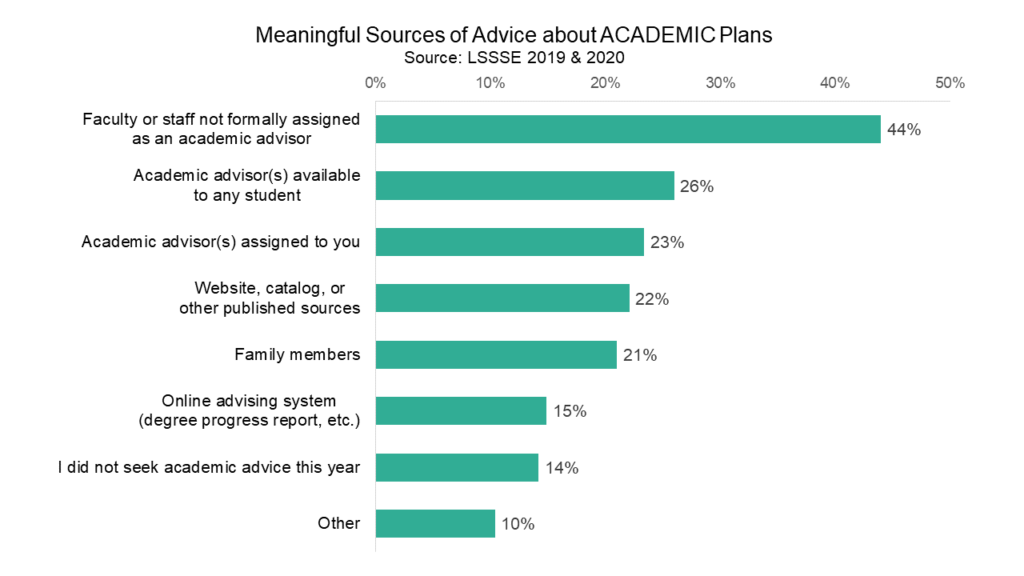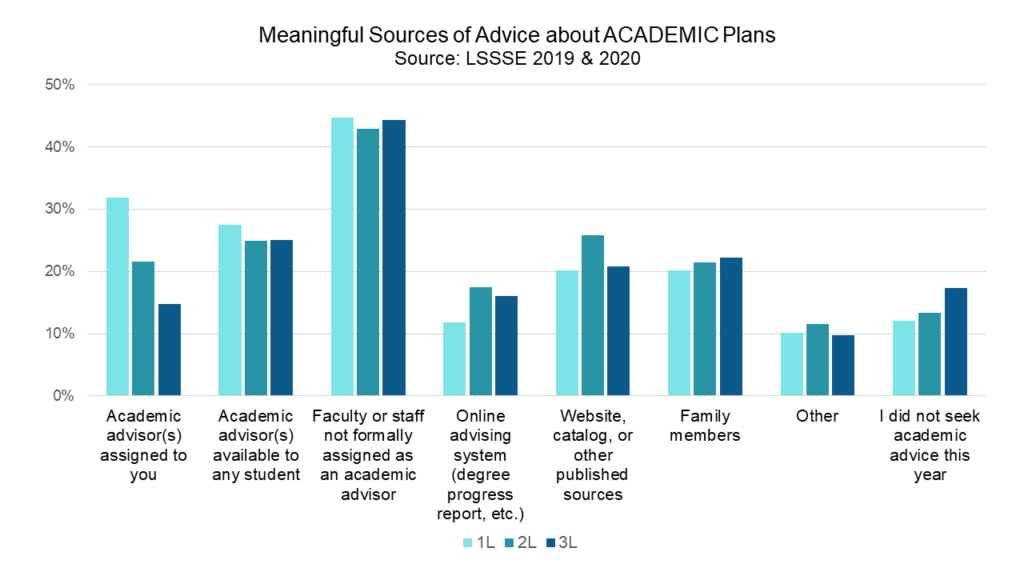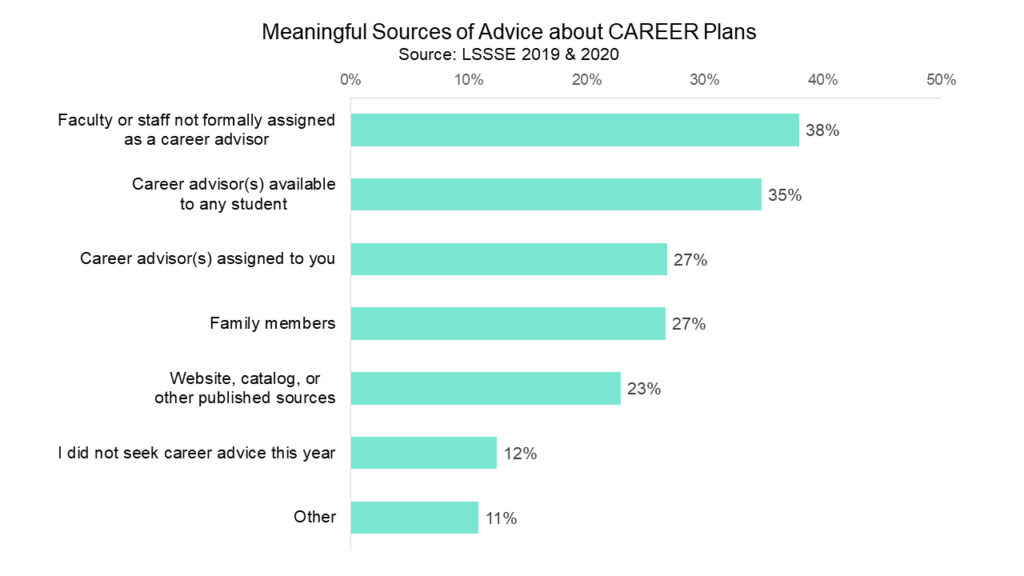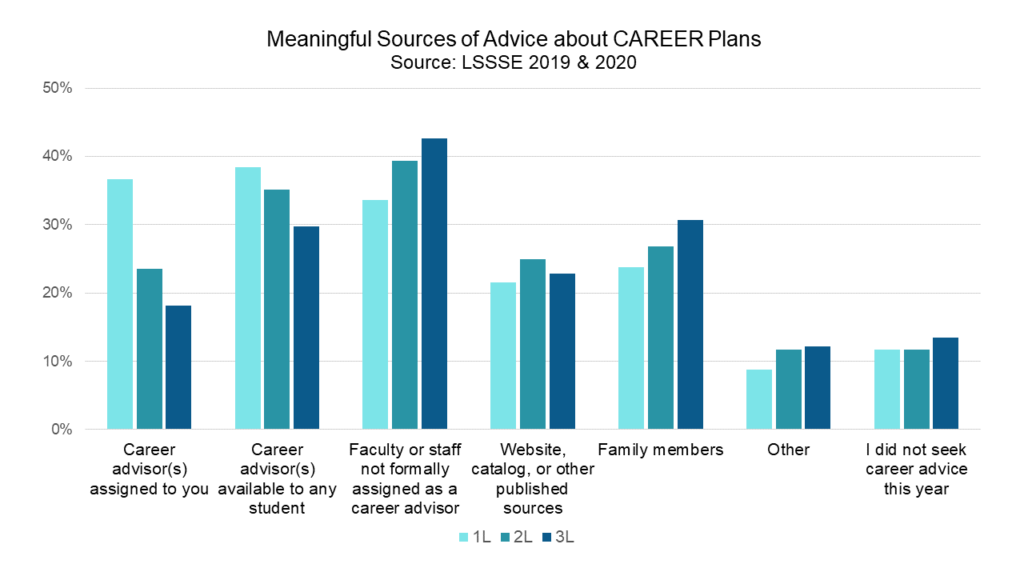LSSSE’s optional Student Services module asks students about whether and how often they access academic and career services. Students draw from various sources to get advice about law school, legal education, and their future careers. Here, we look at the most commonly selected meaningful sources of advice for students and examine how patterns of advice-seeking change as students progress through law school.
Advice about Academic Plans
Faculty or staff not formally assigned as an academic advisor are the most common meaningful source of advice about academic planning. Over 40% of LSSSE respondents rely on these personal relationships that they develop with the law school professionals around them. Formal academic advisors –those assigned and those available to any students – are the second and third most commonly used sources of advice and were selected by 26% and 23% of students, respectively. About 22% of students consider websites, catalogs, or other published sources to be meaningful sources of advice about academic plans, and roughly one in five consulted family members. Only 14% of respondents did not seek academic advice from anyone during the current school year.

Students appear to rely less on assigned academic advisors as they progress through law school. Roughly one-third of 1L students say their assigned academic advisor was a meaningful source of advice, but only 15% of 3L students feel the same way. Perhaps unsurprisingly, 3L students were slightly less likely to seek academic advice than 1L and 2L students.

Advice about Career Plans
The ranking of meaningful sources of advice about career planning is remarkably similar to the ranking for advice about academic planning. Students highly value their relationships with law school faculty and staff when it comes to seeking career advice, ranking faculty or staff not formally assigned as a career advisor highest (38%), followed by career advisors available to any student (35%) and then assigned career advisors (27%). Interestingly, students were equally likely to select family members and assigned career advisors as meaningful sources of career advice. Twelve percent of respondents did not seek any career advice during the current school year.

Students rely less on assigned career advisors as they progress through law school, which is similar to the pattern we saw for academic advising. However, the gradual decrease in reliance on formal career advising is somewhat mirrored by a gradual increase in reliance on advice from faculty or staff not formally assigned as career advisors. It would appear that as students refine their interests and form relationships with particular faculty or staff members, they start to rely more on personal relationships for career advising and less on relationships facilitated by the structure of law school.

